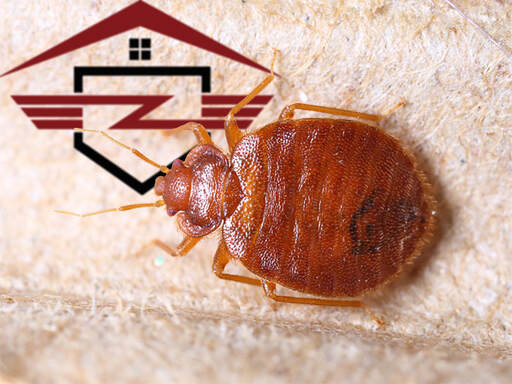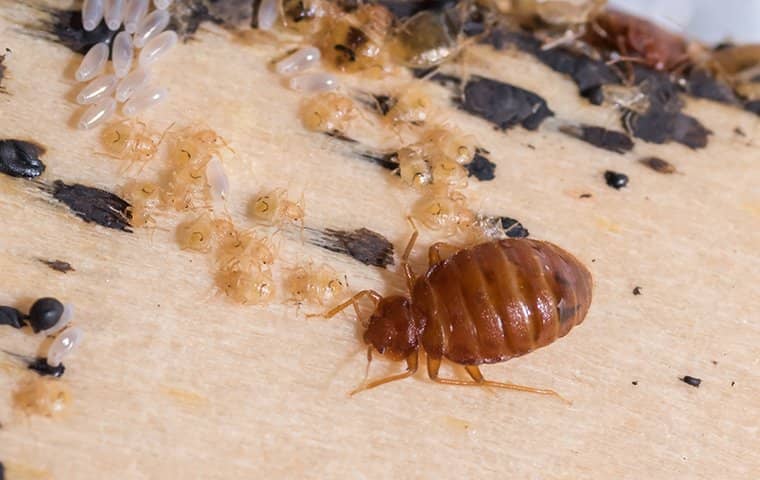Top Kings Cincinnati Bug Control Services: Pest Control Expert Competence
Wiki Article
Sorts Of Bug Control: Which Method Is Right for Your Infestation?
When encountered with a parasite problem, the selection of a proper method for pest control is critical in efficiently taking care of the situation. By checking out the various types of parasite control methods offered, people can make informed choices customized to their unique scenarios, ensuring a much more lasting and reliable result in parasite removal.Chemical Insect Control
Chemical bug control entails making use of synthetic or naturally obtained chemicals to take care of and eradicate pest populations successfully. This approach is commonly utilized in agriculture, forestry, and domestic setups to battle a vast range of insects, including bugs, rodents, and weeds. The usage of chemical pesticides can supply fast and targeted remedies to pest invasions, making it a popular choice for lots of individuals and companies.Among the crucial advantages of chemical parasite control is its capability to promptly remove pests, decreasing the threat of damages to plants, home, and human health and wellness. By utilizing certain chemicals that target specific insects, this technique can efficiently control infestations while decreasing injury to valuable microorganisms and the atmosphere when applied properly.
Nonetheless, using chemical parasite control additionally increases concerns concerning prospective unfavorable effects on non-target types, water resources, and human wellness. It is essential to adhere to safety guidelines, use chemicals responsibly, and think about alternative bug control techniques to reduce these threats and guarantee sustainable pest administration methods.
Biological Insect Control
Biological parasite control, additionally called biocontrol, uses living microorganisms to decrease and take care of bug populations normally. This method uses the power of nature to control parasites without the requirement for artificial chemicals. Biocontrol can include the intro of natural opponents of the pest types, such as parasites, predators, or virus, to reduce pest populaces. By utilizing the insect's natural killers or microorganisms, biological bug control provides a ecologically friendly and lasting option to pest management.
Mechanical Bug Control
Utilizing physical and hands-on approaches to handle bug populaces, mechanical parasite control provides a different strategy that does not rely on making use of living microorganisms or synthetic chemicals. This method entails using obstacles, traps, or other devices to literally prevent or remove parasites. By blocking pest access factors or establishing up traps to catch them, mechanical insect control can efficiently reduce problems without presenting chemicals right into the environment.One usual instance of mechanical pest control is making use of mesh screens on doors and home windows to avoid insects from entering structures. This easy yet reliable method functions as a physical barrier, maintaining insects out while permitting for proper ventilation. In addition, tools like mousetraps, fly swatters, and ultrasonic repellents fall under the mechanical insect control group.
While mechanical parasite control approaches can be labor-intensive and require regular tracking and maintenance, they offer a ecologically pleasant and lasting remedy for managing pest infestations. By combining various mechanical strategies, homeowner can produce an extensive bug control strategy that minimizes reliance on chemical pesticides.
Physical Insect Control

Some common physical parasite control techniques consist of making use of barriers such as screens or internet to stop pest entrance, traps to record and get rid of bugs, and hand-picking to literally eliminate pests from plants or frameworks. Furthermore, strategies like heat treatments can be made use of to manage pests like bed bugs by increasing the temperature level to levels that are deadly to the insects.
Physical parasite view it now control is particularly helpful in integrated pest administration (IPM) methods, where numerous pest control techniques are integrated for reliable parasite management while reducing using chemicals. By utilizing physical bug control techniques, people can efficiently resolve parasite problems with marginal ecological impact.
Integrated Parasite Monitoring
When carrying out physical bug control methods as part of bug management approaches, Integrated Parasite Administration (IPM) becomes a detailed strategy that leverages numerous techniques to efficiently control pest populations. IPM focuses on long-lasting prevention of bugs with a mix of organic, cultural, physical, and chemical tools tailored to particular bug problems. By integrating several control strategies, IPM aims to reduce the risks connected with insects while also reducing reliance on chemical remedies.One trick facet of IPM is the focus on tracking and evaluating pest populations to determine the most appropriate control techniques. This positive technique allows for very early intervention and targeted approaches, bring about much more reliable insect monitoring. Additionally, IPM promotes eco friendly practices by prioritizing check my blog non-chemical control approaches and only using chemicals as a last resource.
Final Thought

By using the pest's all-natural killers or virus, organic bug control uses a sustainable and eco pleasant option to pest administration. - Kings pest control Cincinnati Ohio
Using hand-operated and physical approaches to handle insect populaces, mechanical bug control provides an alternative strategy that does not depend on the use of living microorganisms or artificial chemicals.An effective strategy to taking care of insect populations without counting on chemical or biological methods includes the use of physical parasite control methods.When executing physical pest control techniques as part of parasite management techniques, Integrated Pest Administration (IPM) emerges as a comprehensive approach that leverages numerous strategies to effectively control pest populations. Chemical pest control entails the usage of chemicals, biological insect control utilizes natural predators, mechanical insect control entails physical obstacles, physical bug control includes trapping or removing bugs, and integrated bug management integrates numerous methods for an all natural approach to pest control.
Report this wiki page